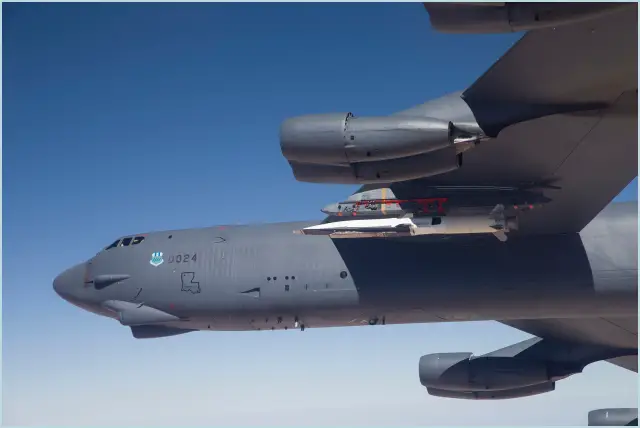Breaking news
United States Air Force X-51A Waverider missile has achieved the longest hypersonic flight 0405131.
| a | |||
| |
|||
World
Air Force News - United States |
|||
| United States Air Force X-51A Waverider missile has achieved the longest hypersonic flight. | |||
The
U.S. Air Force announced Friday, May 3, 2013, its X-51A Waverider missile
has achieved the longest hypersonic flight in history, flying for three
and a half minutes on scramjet power at more than five times the speed
of sound. The final flight of the unmanned aircraft built by Boeing reached
Mach 5.1 over the Pacific Ocean on May 1. It traveled over 230 nautical
miles in just over six minutes. |
|||
 The X-51A Waverider prepares to launch its historic fourth and final flight. The cruiser achieved Mach 5.1 traveling 230 nautical miles in just over six minutes, making this test the longest air-breathing hypersonic flight ever. (U.S. Air Force photo/Bobbi Zapka) |
|||
"It was a full mission success," said Charlie Brink, X-51A program manager for the Air Force Research Laboratory Aerospace Systems Directorate. "I believe all we have learned from the X-51A Waverider will serve as the bedrock for future hypersonics research and ultimately the practical application of hypersonic flight." With the test, the U.S. Air Force has successfully completed a 300-million-dollar, nearly decade-long hypersonic test program that reportedly can be used to deliver strikes around the globe within minutes. The X-51A took off from the Air Force Test Center at Edwards Air Force Base in California, under the wing of a B-52H Stratofortress. It was released at approximately 15,000 meters and accelerated to Mach 4.8 in about 26 seconds powered by a solid rocket booster. After separating from the booster, the cruiser's scramjet engine then lit and accelerated to Mach 5.1 at 18,000 meters. After exhausting its 240-second fuel supply, the vehicle continued to send back telemetry data until it splashed down into the ocean and was destroyed as designed. "This demonstration of a practical hypersonic scramjet engine is a historic achievement that has been years in the making," said Darryl Davis, president of Boeing Phantom Works, in a statement. "This test proves the technology has matured to the point that it opens the door to practical applications, such as advanced defense systems and more cost-effective access to space," said Davis. This was the last of four test flights for X-51A. The first occurred in May 2010. It was hailed as a success, as the vehicle flew for nearly 200 seconds and reached approximately Mach 5. The next two flights, in June 2011 and August 2012, both failed. The Air Force said that X-51A is a technology demonstration program and was not designed to be a prototype for weapon system. It was designed to pave the way to future hypersonic weapons, hypersonic intelligence, surveillance and reconnaissance, and future access to space. Since scramjets are able to burn atmospheric oxygen, they don't need to carry large fuel tanks containing oxidizer like conventional rockets, and are being explored as a way to more efficiently launch payloads into orbit. |
|||



















